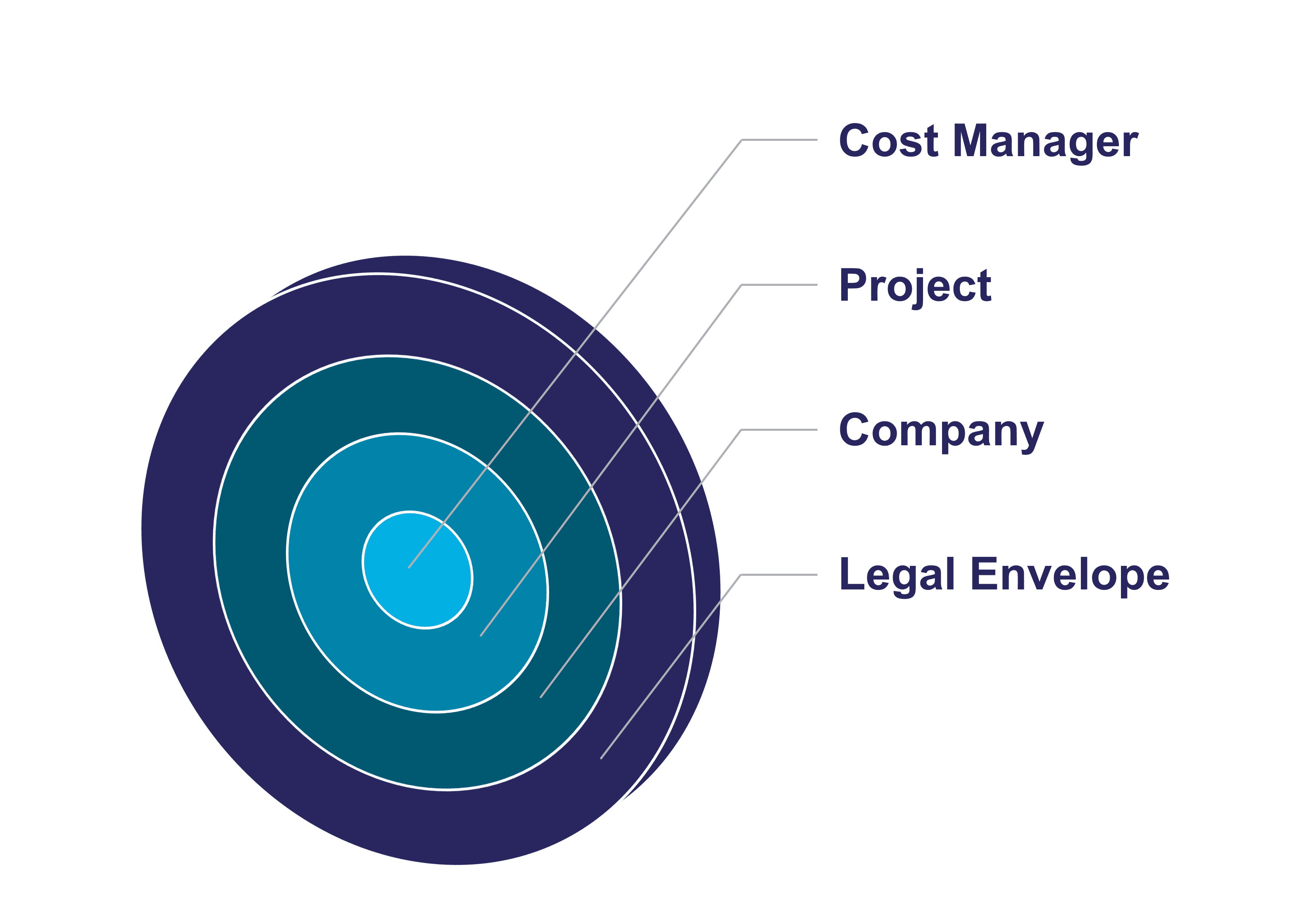Our website is not supported on this browser
The browser you are using (Internet Explorer) cannot display our content.
Please come back on a more recent browser to have the best experience possible

Cost management is an activity we are confronted with daily. Shopping, buying a car, or preparing for a vacation are all activities that beg the question: What is my budget, and how much can I spend? This question also arises for any company and any project; the challenge is to respect the defined budget as much as possible.
Keep in mind that on average, one out of every two projects is delivered with a deviation in one of the project Triple Constraints (scope, cost, time).[1] This means that cost, one of these three elements, plays an important role in project success and must be closely managed.
In this first article of a three-part series, we will explain what cost management is and the different types of costs that exist. Written by our very own consultants who work on global industrial projects, we hope this article helps you to apply these concepts in your own projects.
Project Cost Management is the process of assessing, monitoring, and controlling the costs of a project, in line with both the project budget and the organization’s financial requirements. It is also one of the core functions of Project Controls, a typical part of PMO operations, along with schedule and risk management. The scope of cost management is vast, including the control, analysis, or even forecasting of a given budget.
Project Cost Management is the process of assessing, monitoring, and controlling the costs of a project, in line with both the project budget and the organization’s financial requirements.
As project cost management is so connected to the budget, you may wonder what is the difference between cost and budget management? Budget management is actually more related to the management of the company, whereas cost management is more project-focused. Nevertheless, project cost managers naturally have budgetary responsibilities. After all, following the budget is one of their primary objectives in keeping projects on track.
Cost management has been around since the dawn of project management itself, especially when project success is often determined by its financial outcomes. However, cost management has long been managed internally and rarely outsourced to external contractors. A lack of companies’ in-house expertise in this area, a greater diversity of cost types, as well as the advancement of project management methodologies have paved the way for a more developed financial mindset.

As companies’ focus has expanded around reducing costs and increasing profitability, this pressure is increasingly reflected in projects, putting proper cost management at the forefront. Today, therefore, we see a greater need for specialized cost managers on project teams.
The primary objectives for effective cost management are:
The demand for greater profitability as well as the increase in audit frequency have led companies to need more refined and robust cost and budget management. The challenge is to be able to control, analyze, report, and anticipate costs more precisely. This requires specialized cost managers who have the experience and rigor to do so.
Today a company is constrained in how to record and report their financial transactions by various governing bodies. Guidance is provided by organizations, such as the International Accounting Standards Board (IASB), who provide standard principles such as the International Financial Report Standards (IFRS). Then there are also tax laws in each country.
This whole legal envelope is first applied to the company, whose finance staff takes it into account for regulatory reporting, tax filing, and management reporting. They put in place rules and procedures to ensure their organization follows all legal requirements. These rules and procedures are passed on to the project to be managed by the cost manager.

As long as the company remains within this framework, it can adjust its cost management plan as the law leaves room for it. A company can also manage its costs very globally or in a more detailed way. Either way, the cost manager must be financially accountable because the project (and therefore the company) must be held to account. It’s all about being answerable to the above entity, whether they are local, national, multinational, or global.
Consider the following financial and reporting obligations:
Depending on the type of accounting they choose (cash basis or accrual basis), companies can decide when their fiscal reporting year starts and stops based on what best captures their financial cycle. This enables them to fulfill their financial and reporting obligations.
A company’s accounting requirements must be considered in their project cost management strategy. Additionally, there are 4 types of project costs:
There are different types of costs, which often complement each other:

We can also distinguish the different costs by their nature within a project, which is more granular than those described above. Here are some examples of different costs that can be found in a project:
Understanding these different types of cost as well as the legal accounting requirements makes it possible to define the methods used in managing a project. This allows us to budget, analyze, plan, and control the project costs.
In our next article, we will look at the four phases of cost management.
This article series was written by Aurélien CRÔNIER and Mehdi DARD with contributions from Fanny DA SILVA and the MIGSO-PCUBED Cost Management Community of Practice.
[1] Source: The Standish Group
Table of Contents
Continue in this Series:
Wir kombinieren unser Know-how mit fundierten Branchenkenntnissen, um hochwertige Projektmanagement-Dienstleistungen zu erbringen.
MIGSO-PCUBED ist Teil der ALTEN-Gruppe.
Überall auf der welt
Australia – Canada – France – Germany – Italy – Mexico – The Netherlands – Portugal – Romania – South East Asia – Spain – Switzerland – United Kingdom – United States
© 2024 MIGSO-PCUBED. Alle Rechte vorbehalten | Rechtsinformation | Datenschutz-Bestimmungen | Cookie-Einstellungen | Intranet
Perfekte Jobs ergeben sich auch aus großartigen Umgebungen: dem Team, seiner Kultur und Energie.
Erzählen Sie uns mehr über Sie: Wer Sie sind, Ihr Projekt, Ihre Ambitionen,
und lassen Sie uns gemeinsam Ihren nächsten Schritt finden.
A monthly digest of our best articles on all things Project Management.
Choose your language
Our website is not supported on this browser
The browser you are using (Internet Explorer) cannot display our content.
Please come back on a more recent browser to have the best experience possible
